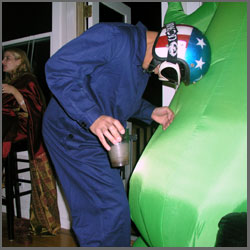Dear Diary,

There’s a dark, melancholy sadness in the air in this part of Turkey, the far eastern section of Anatolia. You see it in people’s faces, you see it in the environment, and you feel it in the cold, bitter crisp air that gnaws at your bones.

Maybe it’s from the dark ominous clouds, and the cold rain or snow that greets us every morning. The landscape between villages is an open-plained, desolate, tundra with snow capped hills in the distance. Shoddy stone buildings dot the countryside accented by lone sheepherders standing in the cold watching over their flock. The small towns and villages look like something out of the former Soviet Union; dark, dreary and cold. The sounds of villages are for the most part quiet and still, only to be broken by Muslim prayer calls bouncing off the city streets.

The clothing that people wear is dark and worn looking; devoid of color, shine or luster. Everyone smokes, drinks lots of strong Turkish tea, as if almost to occupy time, to escape reality or just wait for something better. It seems like the people carry this melancholy like a blanket, as security. You see it in their facial expressions, their movements, and you read it in their wrinkled, weathered faces. There’s an intensity in their eyes that reads of skepticism or lack of trust. I find it harder to catch a passing smile or engage in conversation compared to other places I’ve been. By now, from all the travelling I’ve done, I’m used to the stares of wearing a backpack when first arriving in a town or village. But in this part of the world, it seems the stares on peoples’ faces are not necessarily for seeing a foreigner, but it’s more as if their eyes are saying ‘Why on earth would you come here?’ This part of the country is primarily Kurdish, and maybe this melancholy has been carried on from generation to generation. This area has been a hotbed for Kurdish uprisings and separatist movements. Turkey’s treatment of Kurds has had a checkered past, from xenophobia to genocide (which in 1915 wiped out most of the Armenian population in this area. This is a bone of contention amongst Armenians, Turkey not admitting to human rights violations).

But as for me, I’m enjoying this solace. From time to time, I enjoy the sorrow, the loneliness. It feels real to me and it’s a part of life. Many creative artists, writers and musicians find inspiration from this. Imagine if one were happy all the time, how would you know what happiness is? Now, that would be depressing. This place reinforces my belief that you’re a reflection of where you live. You and your environment become one in the same. Cold places make cold people. Warm places seem to give a warmer disposition. I never would have thought to write any of this while drinking cocktails on a beach in Goa.
But I am enjoying these moments of introspection as a result of being in a cold, bitter place. It's actually quite beautiful here, and I'm enjoying the cold starkness. Maybe it’s because I’m lucky, and have the option to leave, as opposed to some of the locals here who know nothing outside their hometown. Looking outside at the harsh environment is forcing me to look within. Even for someone like myself with a restless soul, it’s nice to take inventory of what you’ve seen, to take a moment of introspection, and maybe realize these things make you who you are. It makes me realize how lucky and privileged I am to be allowed to travel.

But when I'm really feeling down in the dumps, I take this to cheer me up, Dónde está Ché Pelotas?


0 Comments:
Post a Comment
<< Home